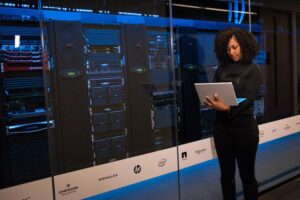In recent years, two technologies have been making headlines all over as they have the potential to revolutionize every industry: Artificial intelligence (AI) and blockchain.
It will not be an exaggeration to state that AI and blockchain are going to be the most exciting technologies of this decade. The technologies, although recent in their application, affect the way we create, store, validate, secure, and analyze data. Both the technologies have different origins and are consequently used separately in various fields.
CIOs from leading industries of various verticals are finding a ‘sweet spot’ where both the technologies can be unified and utilized, giving them an edge over their competitors.
In this article, we have shed some light on the combination of the technologies, the benefits of doing so, and the challenges that we might run into.
Let’s start by understanding both technologies in the context of data, individually.
Understanding the two technologies
Blockchain and AI have changed the way we perceive data.
AI: The ever-increasing ability to collect, clean, sort, and store analyzable data has led to an age where a company’s growth might depend on how well it uses AI. Furthermore, the kind of data that gets collected depends on what kind of actionable insight can be extracted from it. In other words, the method of usage of AI determines what data is important and should be collected.
Blockchain: Blockchain is an append-only, collectively owned, decentralized, distributed ledger technology that is rewriting the rules of data storage. The societal framework of trust, identity, and exchange has completely evolved because of blockchain. The way data is stored, accessed, and validated is entirely different now. For instance, in traditional data-storage mechanisms, data was accessible to and owned by a few people. However, in blockchain, everyone who is a part of the ledger can access the data.
In conclusion, blockchain and AI have the following kinds of impacts on data.
- The definition of ‘important data’ that should be collected.
- Persons who should have access to the stored/analyzed data
- The way data is to be analyzed to further the organizational goals.
The impacts, although simple, have a tremendous effect on how businesses function. For example, cryptocurrency trading mistakes often happen of not using AI tools correctly.
Combining the two technologies brings a lot of advantages for businesses.
Benefits of combining blockchain and AI
AI has been in use for a while and newer ways to get more out of the technology are constantly popping up. Blockchain has found its place in finance, communication, trading, manufacturing, and supply chain with more applications being added to the list.
Here are the few benefits of combining these two technologies.
Smart Contracts
Smart contracts are public computer codes that transfer funds when certain conditions are met within the blockchain. As the code is public, hackers can go through it at their pace to find vulnerabilities within the code to exploit them. Also, the conditions are static and need to be set again in one of the presets that has changed.
Integration of artificial intelligence will help with making smart contracts more dynamic and secure. By finding security loopholes through constant analysis and producing new smart contracts as the conditions evolve AI can improve smart contracts.
Energy-efficient systems
Google has decreased the energy consumption of its servers by 40% by training DeepMind AI with historical data. This has solved one of the major problems in the data-driven modern world.
Cryptography and mining, both based on blockchain technologies, consume a lot of energy as they require a lot of processing power. By using machine learning technology, blockchain-based applications can be made more energy-efficient.
Broader adoption of AI
The exact way in which AI-based systems make decisions are unknown to most customers. Unsurprisingly, there is an element of mistrust from the customer’s perspective as no one wants their data handled by machines.
By integrating blockchain technology, the decision-making process of AI can be tracked and appended onto the distributed ledger for further analysis. Not only will this help gain the public’s trust in automated systems, but this also will help the engineers improve the technology. As a result, AI can be adopted by more industries and its applications will increase.
Data privacy and security
Blockchain brings security and privacy by limiting access to data. Furthermore, the decentralized, mutual verification of an entry before it is added to the ledger adds an additional layer of security. Incorporating artificial intelligence into this will enable invested and concerned parties to gain deeper insights.
For example, in the healthcare industry, data is stored in a decentralized ledger to facilitate anonymity and privacy. By using AI, this data can be analyzed to further research and diagnose diseases accurately.
Apart from the benefits, there are certain challenges that are to be dealt with while using the two revolutionary technologies.
Potential challenges while combining blockchain and AI
The fundamental differences between the two technologies pose certain roadblocks as they are merged.
- Speed: AI-based systems are capable of doing millions of transactions per second. In the case of blockchain systems, it is quite low. For example, the Ethereum blockchain is capable of exceeding 15 transactions per second. This disparity in speed is a challenge in the path of integration.
- Execution of AI algorithms by smart contracts: It will be a great addition to the technology as AI adapts to new conditions. However, smart contracts themselves are not safe and can have loopholes due to negligent programming. As a result, hackers might exploit this to their advantage.
- Standards and regulations: Even today, proper laws and regulations around blockchain have not been set. The requirement of local and global standards of practice will guide the interoperability of AI and blockchain. The lack of the same results in poor security of sensitive data as the two technologies intersect.
Wrapping up
In closing, the important thing is to keep an eye on new information, especially the regulations around both technologies. We hope that this article has helped you understand the benefits of the combined utilization of blockchain and artificial intelligence.










